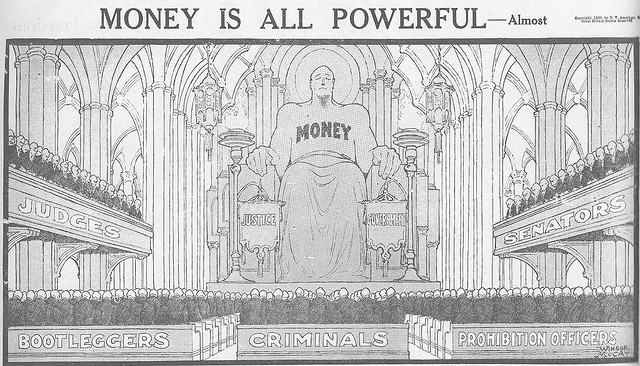Editor’s Note: Nate Atkinson left this comment on my recent post, and I thought I’d highlight it here. It’s part of our recent discussion on Censure and Censorship in comics.
_________
Freedom of speech arguments suffer from the fact that the word “freedom” has become a God-term in US liberal-democratic discourse. In fact, what a lot of commenters are calling a value of the left is actually a value of classical liberalism, where “freedom-to” trumps “freedom-from.” This isn’t an accident, as liberalism views that the individual is the fundamental unit of society, and thus views anything that restricts those freedoms as a threat to the social order. Compare this to a society that defines freedom as “freedom-from,” as in freedom from want, or freedom from threat. In those societies, a person’s freedom-to is more readily limited to assure freedom from (that’s where we get truly progressive taxation). Importantly, both definitions of freedom allow for democracy, though freedom-to is more encouraging of laissez faire capitalism.
So what does this have to do with speech? The smart-ass answer is that in a country where money=speech, the emphasis on freedom-to provides an argument for unlimited campaign donations. But that’s not what we’re discussing here, is it?
When we talk about freedom of speech we default to the “freedom to speak.” We forget that when we protect the freedom to speak we risk impinging not only on freedom-from speech, which is to say freedom from speech that makes the world a difficult place in which to live, and for certain people, to speak. Paradoxically, the unreflective privileging of the freedom to speak actually creates an obstacle to freedom of speech. And this gets me to the question of moral goods.
As a society, the US has a long history of divorcing politics from questions of moral good. There’s a reason for this, which is that the pragmatism of Rawls (and to a lesser extent Dewey) greases the wheels of discourse by bracketing questions about what is “true” or “good” and focussing instead on questions about what is legitimate and procedures for securing a consensus. As a result, assumptions about moral goods sneak in through the backdoor and elude sustained examination. Everyone just agrees that freedom is good without actually examining what freedom means, not only to them, but to others. Freedom-to is conflated with freedom-from, and we all truck along under a false consensus about what freedom of speech means.
However, if we unpack the notion of freedom even a little, we see the dynamic between freedom-to-speak and freedom-from-speech. This creates dissensus, which makes it anathema to pragmatism, but it also allows us to recuperate freedom of speech as a moral good, something to nurture and protect. This would allow us to discuss it as more than means to an end, a means that might or might not outlive its usefulness.
by Winsor McCary

